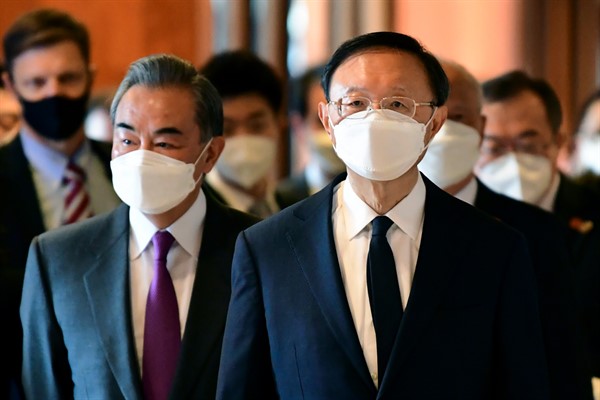Editor’s Note: Every Wednesday, WPR contributor Rachel Cheung and Assistant Editor Benjamin Wilhelm curate the week’s top news and expert analysis on China. Subscribers can adjust their newsletter settings to receive China Note by email every week.
China’s “wolf warrior” diplomacy may have backfired in Australia, Canada and most recently France, but in a sign of its hardening attitude toward the West, Beijing is not backing down from its aggressive posture. Defying diplomatic norms, a growing number of Chinese envoys are adopting a belligerent tone in their speeches and tweets, which Chinese authorities have justified as a necessary response to counter what they call “foreign smears” and to protect “national interests.” While it panders to jingoism at home, such combative diplomacy also reflects the Chinese leadership’s firm belief that the West is in irreversible decline and, therefore, China no longer needs to maintain friendly ties.
Named after two patriotic blockbuster films starring a Chinese soldier who defeats all his enemies, including foreign mercenaries, the “wolf warrior” term was coined in 2019 to describe the newly bellicose rhetoric from some prominent Chinese officials. Zhao Lijian, a spokesperson for the Chinese Foreign Ministry, was at the forefront of this campaign: His controversial tweet of a doctored image that showed an Australian soldier holding a knife to the throat of an Afghan child set off a diplomatic furor with Prime Minister Scott Morrison’s government last December.

